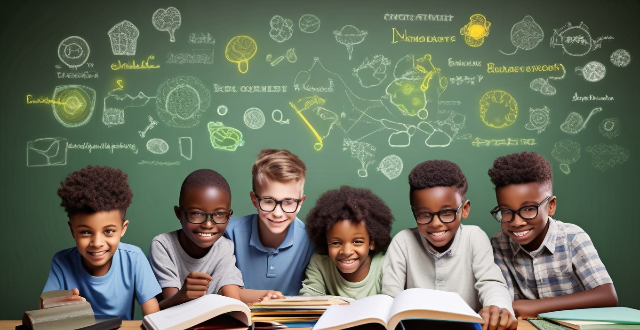In a multicultural society, the education system is influenced in various ways. One of the most obvious impacts is diversity in classrooms which can enrich the learning environment and help students develop empathy and understanding for people who are different from themselves. The curriculum may need to be adapted or changed to accommodate the needs of a diverse student population. Language barriers can also be a challenge for both students and teachers. Educators need to be culturally sensitive and aware of the diverse backgrounds of their students. Parental involvement in education can be complex in a multicultural society. By embracing diversity in the classroom, the education system can create an inclusive and enriching learning environment for all students.

How does a multicultural society impact the education system?
In a multicultural society, the education system is influenced in various ways. Here are some of the key impacts:
1. Diversity in classrooms
One of the most obvious impacts of a multicultural society on the education system is the diversity in classrooms. Students from different cultural backgrounds bring their unique perspectives and experiences to the classroom, which can enrich the learning environment. This diversity can also help students develop empathy and understanding for people who are different from themselves.
2. Curriculum changes
To accommodate the needs of a diverse student population, the curriculum may need to be adapted or changed. This could involve incorporating more culturally relevant content into the curriculum, such as literature, history, and art from different cultures. It could also involve teaching students about different cultures and traditions, helping them to understand and appreciate the diversity around them.
3. Language barriers
In a multicultural society, language barriers can be a challenge for both students and teachers. Some students may not speak the language of instruction fluently, which can make it difficult for them to understand and participate in class. Teachers may need to adapt their teaching methods to accommodate these students, such as using visual aids or providing additional support.
4. Cultural sensitivity and awareness
Educators in a multicultural society need to be culturally sensitive and aware of the diverse backgrounds of their students. This means being respectful of different cultures and traditions, avoiding stereotypes and biases, and creating a welcoming and inclusive environment for all students. It also means being open to learning from students and their families about their cultures and traditions.
5. Parental involvement
In a multicultural society, parental involvement in education can be complex. Parents from different cultures may have different expectations and beliefs about education, which can sometimes clash with the expectations of the school or teachers. Educators need to be open to communication with parents and work to build relationships based on mutual respect and understanding.
In conclusion, a multicultural society has a significant impact on the education system. It requires educators to be adaptable, culturally sensitive, and open to learning from their students and their families. By embracing diversity in the classroom, the education system can create an inclusive and enriching learning environment for all students.